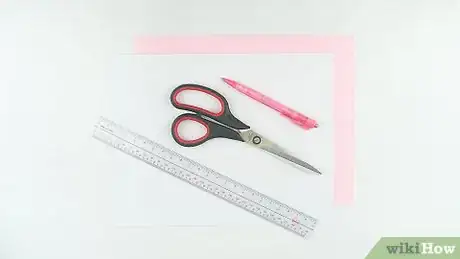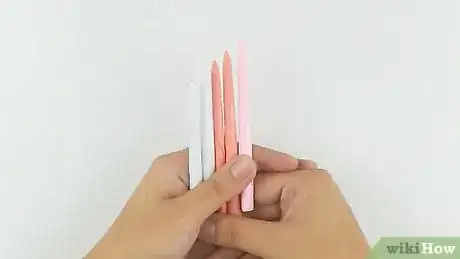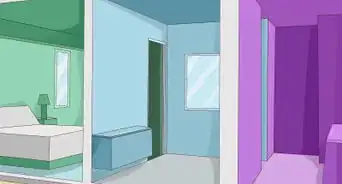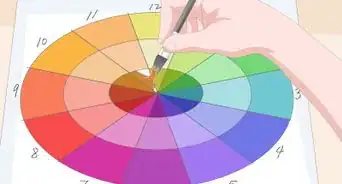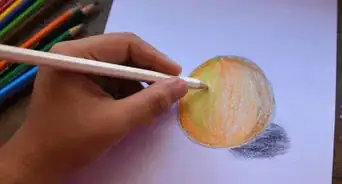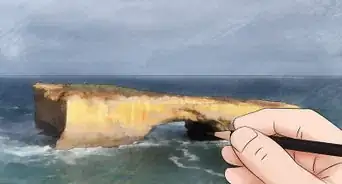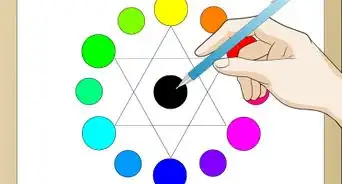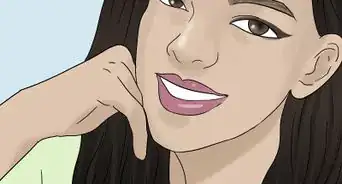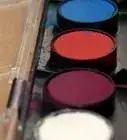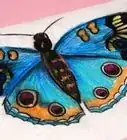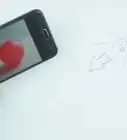This article was co-authored by wikiHow Staff. Our trained team of editors and researchers validate articles for accuracy and comprehensiveness. wikiHow's Content Management Team carefully monitors the work from our editorial staff to ensure that each article is backed by trusted research and meets our high quality standards.
The wikiHow Video Team also followed the article's instructions and verified that they work.
This article has been viewed 219,773 times.
Learn more...
Have you ever been in the middle of drawing something, only to realize you didn’t have an easy way to neatly blend your work? If so, then you need to try using a tortillon. A tortillon is a cylindrical tool artists use to smudge or blend marks made by a variety of materials, including charcoal, crayon or pencil. And luckily for you, it’s very easy – and cheap – to make a tortillon at home.
Steps
Preparing Your Tortillon
-
1Gather your supplies. To create the tortillon, you will need a blank piece of copy paper (recommended size A4) a ruler, a pencil and a pair of scissors. You will be able to create two usable tortillons for every one piece of copy paper you prepare.[1]
- A4 paper is 210mm wide and 297mm long (approximately 8 1/4 x 11 3/4 inches.)
-
2Draw a straight line. To do this, measure 1” down the side of your paper and mark it with your pencil. Flip your paper and measure 1” down on the other side. Connect your ruler between the two pencil markings and draw your straight line.[2]Advertisement
-
3Cut your paper. Following the straight line you’ve drawn down the center of your paper, cut the paper into two halves. To learn how to cut a straight line on paper using scissors, read this article.
Creating Your Tortillon
-
1Roll your paper. Grasp the narrowest end of your paper in your hands. Roll the paper evenly and medium tightly towards the other edge of the paper. Be careful not to roll too tightly, as this can result in a more finely tipped tortillon.[3]
- If you are struggling to roll your tortillon, try positioning it on a flat surface and rolling it using a similar motion to that of a rolling pin. Don’t worry if you struggle for a while; creating a usable tortillon takes time and practice.
-
2Form the pencil shape. To accomplish this, you will need a thick wire, knitting needle or something similarly sized and shaped. Using your tool, push the center of the tortillon out until it has assumed the shape of a pencil.
-
3Secure the tortillon. Take a small piece of tape and use it to reinforce the tortillon. Make sure to trim any extra paper or tape from the top, as this will get in the way of blending and could potentially ruin your shading.[4]
Maintaining Your Tortillon
-
1Clean your tortillon. Tortillons will last for a long time, provided you care for them. To clean your tortillon, rub it against a rough surface until the outer layer is scraped off. Medium sandpaper is a great tool for cleaning your tortillon.[5]
- When blending lighter areas, use a clean tortillon. When blending darker areas, use a dirty tortillon.
-
2Trim the frayed paper. Using craft scissors, clean off the excess paper from your tortillon. Go slowly, and try to recreate the rounded point you had after initially creating the tortillon.
-
3Organize tortillons by color. If you continuously clean your tortillons, you will find they have a much shorter shelf life. To avoid this, try organizing your tortillons by the color lead they have on them. If you continue to use the correct shade of tortillon when you are blending, you will not have to clean them as often and the tortillon will last much longer.[6]
Community Q&A
-
QuestionWhat is the difference between a tortillon and a blending stump?
 HeyItsLucy05Community AnswerA tortillon is much smaller, thinner, and more precise than a blending stump.
HeyItsLucy05Community AnswerA tortillon is much smaller, thinner, and more precise than a blending stump. -
QuestionHow do you clean a tortillon?
 Community AnswerI just use a sandpaper block. Rub a tortillon at an angle on it and you're ready to go.
Community AnswerI just use a sandpaper block. Rub a tortillon at an angle on it and you're ready to go. -
QuestionHow do I make a blending stump?
 Miracle OwensCommunity AnswerFollow these instructions, but add more paper since the blending stump is much thicker. Stumps are used for thicker shading.
Miracle OwensCommunity AnswerFollow these instructions, but add more paper since the blending stump is much thicker. Stumps are used for thicker shading.
Warnings
- A tortillon is smaller and thinner than a blending stump. Make sure you are using the correct instrument to achieve your desired results.⧼thumbs_response⧽
Things You'll Need
- A Piece of Paper (A4 is recommended)
- Ruler
- Pencil
- Tape
- Scissors
- Slim Knitting Needle/Wide Wire
- Craft Scissors
References
- ↑ http://monologues.co.uk/Portraits/Tortillon.htm
- ↑ http://monologues.co.uk/Portraits/Tortillon.htm
- ↑ http://monologues.co.uk/Portraits/Tortillon.htm
- ↑ http://monologues.co.uk/Portraits/Tortillon.htm
- ↑ http://monologues.co.uk/Portraits/Tortillon.htm
- ↑ http://www.explore-oil-pastels-with-robert-sloan.com/tortillons-and-stumps.html
About This Article
To make a tortillon, start by measuring 1 inch down the side of a piece of copy paper and marking it with a pencil. Flip the paper and mark it the same way on the other side, then connect the 2 marks with a straight line. Next, use scissors to cut along the line so you end up with 2 identical pieces of paper. Then, grasp one of the pieces by the narrowest end and roll it tightly towards the outer edge of the paper. Finally, use a piece of thick wire to push the center out so the tip is pencil-shaped, and secure the paper with a small piece of tape. To learn how to maintain your tortillon so you can use it for a long time, read on!
